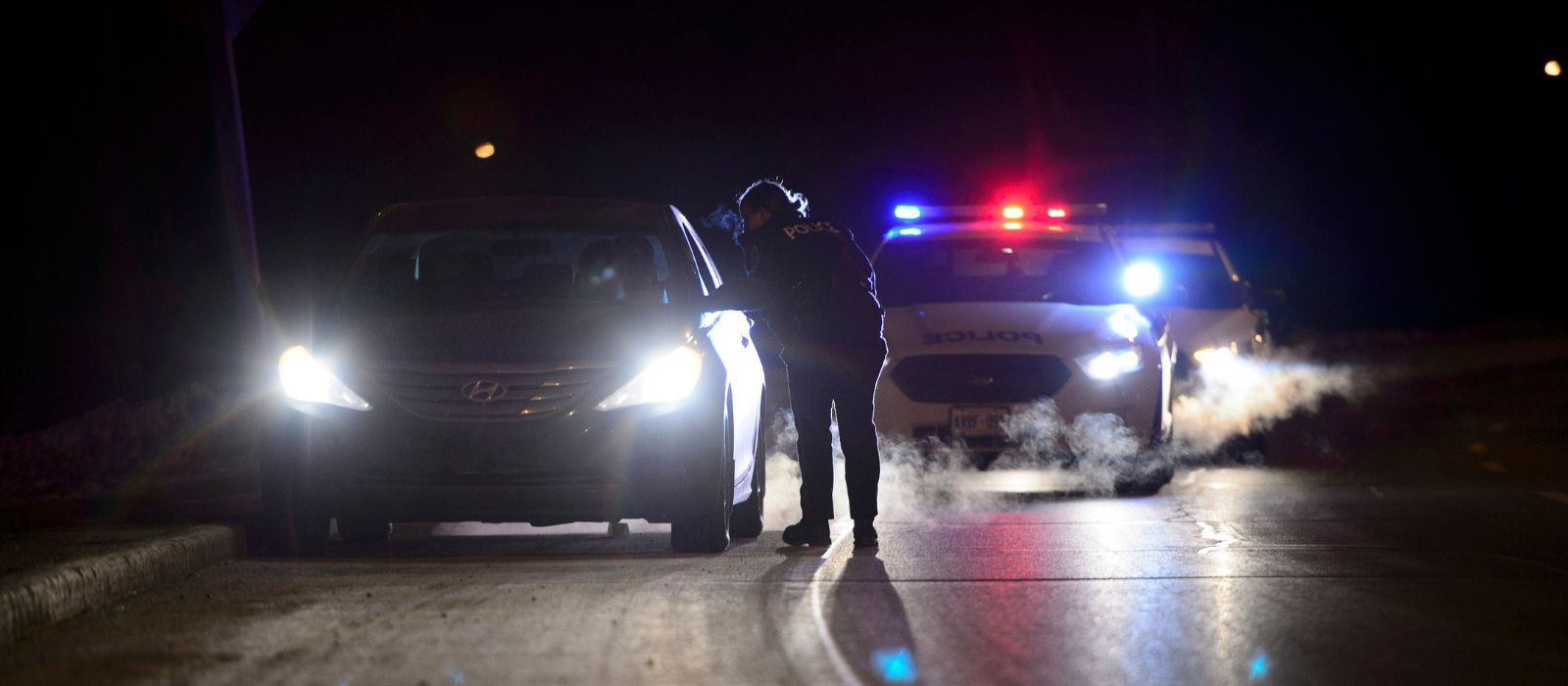Impaired Driving
In Ontario, drivers with a .08 Blood Alcohol Count (BAC) or more who refuse to provide a breath sample or are determined to be impaired following a drug recognition evaluation will have their licence suspended immediately for 90 days.
This is separate from any impaired driving charges the driver may face. Impaired drivers will also have the vehicle they are driving impounded for seven days. Impaired boaters face the same consequences as impaired drivers.
Since 2018, officers have had the ability to demand a driver to provide a sample of their breath into an approved screening device without first suspecting that the driver had been drinking.
|
How to report someone using cannabis while driving? |
|
Using cannabis while driving is the same as drinking alcohol or taking any other substances while driving. If you suspect a driver is using cannabis and/or impaired, call 911. You will be asked for a description of the vehicle, licence plate, driving habits, the whereabouts of the vehicle and a description of the driver if possible. If the odour coming from a vehicle is unburnt (leaf cannabis) this may be a violation of the Cannabis Act and may not be a priority call, such as in excess of the personal exemption or improper storage. You can report this to our non-emergency Police Reporting Unit online or call 613-236-1222, extension 7300. But if their driving habits suggest the driver may be impaired, call 911. |

The amount you’ve consumed is irrelevant if you exhibit signs of impairment – it’s a criminal offense. Read more...
Consequences of impaired driving
Minimum consequences for drivers convicted of impaired driving, driving with a .08 BAC or more, driving with over 5ng of THC, or refusing to provide a breath sample are:
- One-year driver's licence suspension (reducible to three months under certain circumstances).
- One-year ignition interlock condition upon reinstatement (up to three years for repeat offenders)
- $550 penalty
- Back on Track program (alcohol assessment and education)
- Minimum fine paid as part of federal consequences
- Licence reinstatement fee
- Increased insurance premiums ($5,000 annually for a minimum of three years)
- Legal costs (if retained; paid to your own legal counsel)
- Criminal record
- Repeat offenders face greater consequences and longer licence suspensions.
There is zero-tolerance for drivers aged 21 and under, novice drivers (G1, G2, M1, M2), as well as commercial drivers. If these drivers violate the zero-tolerance requirements, they face the same increasing penalties as drivers who have a blood alcohol concentration level of 0.05 or higher (warn range) or the drivers who fail a roadside sobriety test.
First offence
- Three-day licence suspension
- $250 penalty
Second offence within five years
- Seven-day licence suspension*
- Mandatory education program programs (for a second occurrence within ten years)
- $350 penalty
Third and subsequent offence within five years
- 30-day licence suspension*
- You must attend a mandatory treatment program (for third and subsequent occurrences within 10 years)
- You will be required to use an ignition interlock device for at least six months (for third and subsequent occurrences within 10 years)
- $450 penalty
You will need a mandatory medical evaluation that could result in an extended licence suspension.
You will also face a $198 licence reinstatement penalty for each offence, and you may also be charged under the Highway Traffic Act. If convicted, you will face an additional suspension and a fine.
If you are a novice driver with a G1, G2, M1 or M2 licence and your licence has been suspended three times for violating zero-tolerance requirements for drugs and/or alcohol, you will have your licence cancelled, and you will have to retake all of your driving tests.
Drug-impaired driving is still impaired driving.
Too often, people who drink or get high think they are okay to drive because they only feel "buzzed." You don't have to be falling-down drunk to be a danger behind the wheel. Driving while being buzzed by drugs or alcohol can lead to devastating consequences.
According to Mothers Against Drunk Driving (MADD), there are approximately 1,250 crash-related impaired deaths in Canada each year. This statistic illustrates the importance of working together. Collectively we can make a difference.
We continue to see impaired drivers in Ottawa, and we are dedicated to enforcement and education to make our roads safer for everyone. The RIDE program (Reduced Impaired Driving Everywhere) is held several times a year.
Always arrange a safe way home and a backup plan in case you find yourself impaired or your designated driver has been drinking. Call a friend, take a taxi, sleep over or take the bus home.
Ottawa residents are encouraged to 911 when they see someone they believe may be driving while impaired by alcohol or drugs. Together, we can help everyone arrive alive.


